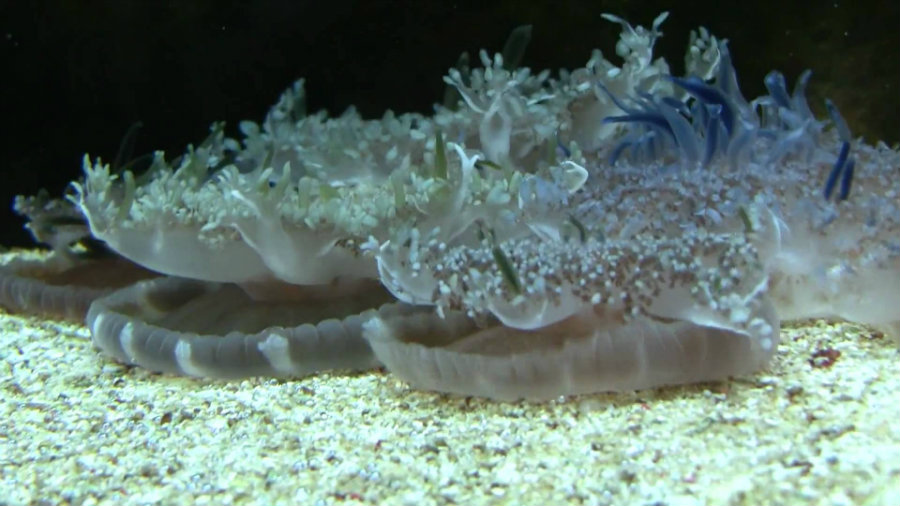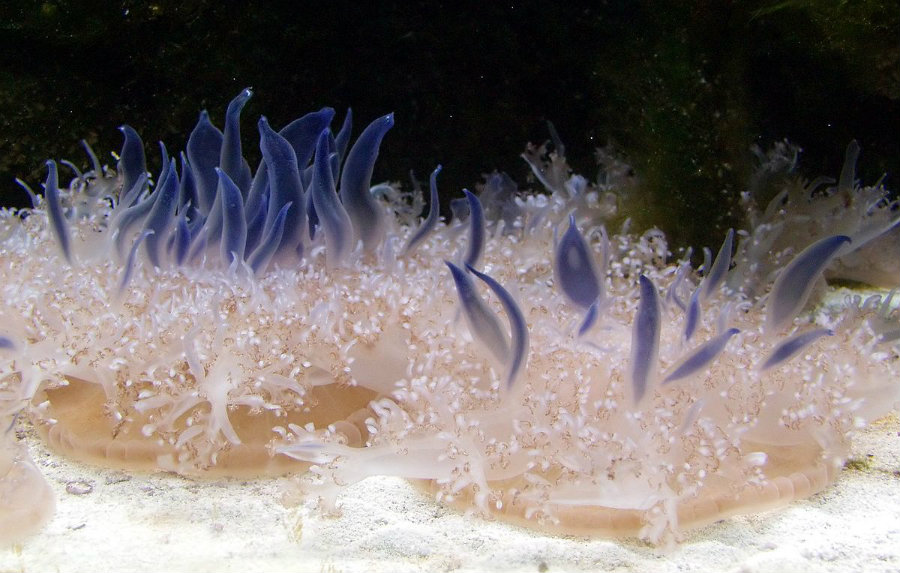A new study of the Caltech’s Howard Hughes Medical Institute found out that jellyfish sleep even though they are so primitive and have no brain. This leads to question if all primitive and invertebrate organisms can sleep.
The researchers started this study because they wanted to find out once and for all if creatures like sponges and jellyfishes could sleep even taking into account their primitive structures. To carry out this experiment, they studied the cauliflower-like Cassiopea jellyfish. They still don’t know if they can dream.

“We wanted to figure this out once and for all,” Paul Sternberg, a researcher at Caltech’s Howard Hughes Medical Institute, said in a news release. “It’s important because it’s (an organism) with what we think of as a more primitive nervous system. … It raises the possibility of an early evolved fundamental process.”
Do all animals sleep?
The scientific community is aware that all vertebrates sleep. However, they haven’t agreed whether or nor all animals can do what is such a necessary activity for human beings. Some invertebrates sleep, for example, fruit flies, or some worms. However, this debate turns more difficult when it comes to primitive organisms such as jellyfish, especially because these organisms have no brain.
This question raised among Michael Abrams, Claire Bedbrook and Ravi Nath from Caltech. Claire at the moment said that the mushroom-like animals could not sleep because sleeping is a complex behavior associated with memory consolidation and REM cycles in the brain, and since jellyfish had no gray matter then they couldn’t achieve this state. Her friends, on the other hand, were doubting about it, so they decided to confirm it.
“I guess we’re going to have to test it,” Nath said, half-joking.
Though Bedbrook was not cool with the idea of testing it, she changed her mind, and they started studying and researching during months. Therefore, one night they entered in total darkness into the Caltech lab where they had a jellyfish. They recorded the jellyfish the whole night with an iPhone.

Last Thursday, they published their study findings in the journal Current Biology, where they stated that Cassiopea jellyfish did exhibit sleeping behavior. To explain this, the students suggest that sleeping is deeply rooted in biology and that it is a practice that was developed early in history and therefore organisms have kept it as part of their nature.
This study might have been a surprise for everyone else in Caltech since the researchers didn’t tell anybody about their crazy idea. It wasn’t forbidden per se, but they didn’t want their Ph.D. advisers breathing down their necks.
“When you start working on something totally crazy, it’s good to get data before you tell anybody,” Abrams said.
The paradox of Sleep
Jellyfish are the first known organisms that sleep having no brain. However, this doesn’t mean they are the only ones to do so without an evolved nervous system, and that is the question many scientists might be wondering right now. The researchers said that with this contribution they might be closer to solve the “paradox of sleep.”
According to Bedbrook, sleeping must be such an important activity for organisms that none of them have found a way to lose it. She said that if animals could evolve finding a way to live without the need of sleeping they have done so already. However, according to studies, when animals are deprived of sleep for too long they die. Even the ones with simple neural structures such as the roundworm, with a brain of just 302 neurons, need to sleep to survive.
“Sleep is this period where animals are not doing the things that benefit from a natural selection perspective,” Nath said. “Think about it, If you’re asleep in the wild when a predator comes along, you’re dead. If a food source strolls past, you go hungry. If a potential mate walks by, you miss the chance to pass on your genetic material”
Jellyfish practically behave like plants
Jellyfish are one of the oldest organisms on Earth. The Cnidarians, the phylogenetic group that includes jellies, dates back to 700 million years. Cassiopea – the type of jelly they studied – has no brain; instead, it has a diffuse net of nerve cells all over the body. According to the scientists, they are like plants because they don’t really behave like animals.
They suck food through pores in their tentacles, because they have no mouth. Their energy is obtained via a symbiotic relationship with tiny photosynthetic organisms that are found within their own cells. Bedbrook describes these organisms as “weird plant animals.” They don’t move a lot, they tend to maintain inactive for extended periods of time, and they are 30 times less active during the night. However, these characteristics make jellyfish the perfect organisms to test the origins and the evolution of sleep.
Source: The Bulletin

Meh. Maxine Waters has always been able to do the same thing.